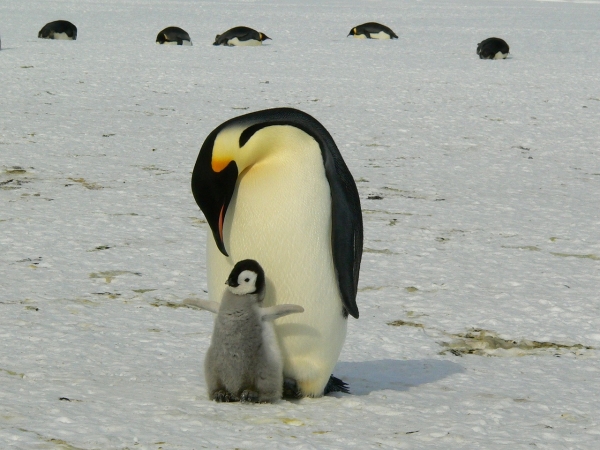Emperor penguin colonies experienced unprecedented breeding failure in a region of Antarctica where there was total sea ice loss in 2022.
Emperor penguin colonies experienced unprecedented breeding failure in a region of Antarctica where there was total sea ice loss in 2022. The discovery supports predictions that over 90% of emperor penguin colonies will be quasi-extinct by the end of the century, based on current global warming trends.
In a new study published today in Communications Earth & Environment, researchers from British Antarctic Survey discussed the high probability that no chicks had survived from four of the five known emperor penguin colonies in the central and eastern Bellingshausen Sea. The scientists examined satellite images that showed the loss of sea ice at breeding sites, well before chicks would have developed waterproof feathers.
Emperor penguins are dependent on stable sea ice that is firmly attached to the shore (‘land-fast’ ice) for the majority of the year, from April through to January. Once they arrive at their chosen breeding site, penguins lay eggs in Antarctic winter from May to June. Eggs hatch after 65 days, but chicks do not fledge until summer, between December and January.
Read More: British Antarctic Survey
Photo Credit: MemoryCatcher via Pixabay






